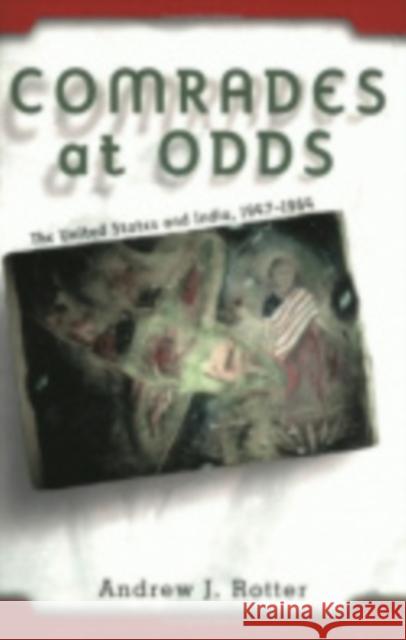Comrades at Odds: The United States and India, 1947-1964 » książka
Comrades at Odds: The United States and India, 1947-1964
ISBN-13: 9780801484605 / Angielski / Miękka / 2000 / 368 str.
Comrades at Odds: The United States and India, 1947-1964
ISBN-13: 9780801484605 / Angielski / Miękka / 2000 / 368 str.
(netto: 137,15 VAT: 5%)
Najniższa cena z 30 dni: 135,14
ok. 30 dni roboczych.
Darmowa dostawa!
Comrades at Odds explores the complicated Cold War relationship between the United States and the newly independent India of Jawaharlal Nehru from a unique perspective that of culture, broadly defined. In a departure from the usual way of doing diplomatic history, Andrew J. Rotter chose culture as his jumping-off point because, he says, "Like the rest of us, policymakers and diplomats do not shed their values, biases, and assumptions at their office doors. They are creatures of culture, and their attitudes cannot help but shape the policy they make." To define those attitudes, Rotter consults not only government documents and the memoirs of those involved in the events of the day, but also literature, art, and mass media. "An advertisement, a photograph, a cartoon, a film, and a short story," he finds, "tell us in their own ways about relations between nations as surely as a State Department memorandum does."While expanding knowledge about the creation and implementation of democracy, Rotter carries his analysis across the categories of race, class, gender, religion, and culturally infused practices of governance, strategy, and economics.Americans saw Indians as superstitious, unclean, treacherous, lazy, and prevaricating. Indians regarded Americans as arrogant, materialistic, uncouth, profane, and violent. Yet, in spite of these stereotypes, Rotter notes the mutual recognition of profound similarities between the two groups; they were indeed "comrades at odds."











